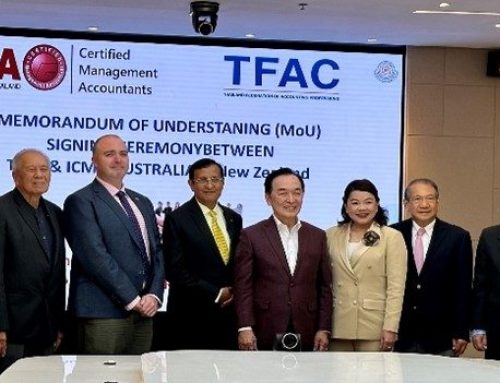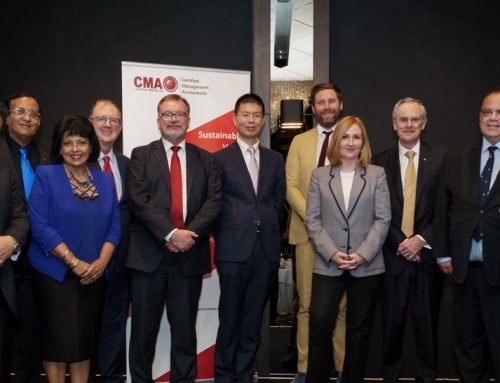- ICMA CEO calls for the auditing of strategies to control bad corporate behaviour
Professor Ratnatunga asserts that most of the companies being exposed received a clean bill of health via an unqualified audit opinion.
“The external audit is supposed to operate as a trust mechanism to persuade the public that capitalist corporations and management are not corrupt and that companies and their directors are held accountable,” says Professor Ratnatunga.
Such events, he believes, fuel suspicions that auditors lack the necessary independence, expertise and incentives to deliver the promised ‘true and fair’ account of corporate affairs.
This could be a controversial position for many in the financial services profession, but Professor Ratnatunga believes that ICMA’s members, management accountants, can play a stronger role.
“It’s time for management accountants to further distance themselves from the financial accounting and auditing professions and ensure that they are able to inculcate good strategic governance and strategic audit practices in their organisations,” he urged.
He is also calling for compulsory strategic audits to evaluate business decisions and practices that have a potential of significantly diminishing the reputation and value of the company.
“Key business practises in marketing, advertising, supply-chain, manufacturing, human resource management, information technology as well as finance need to be strategically audited to ensure that brand reputation and shareholder value is ‘future-proofed’ against such rampant bad behaviour,” he says.
“Further, it is important for government legislation to significantly increase the cost of bad behaviour. Currently, penalties are often easily absorbed by the sheer volume of revenue generated by such unethical actions.”
Professor Ratnatunga supports the recommendations of Mr Sims, that penalties and fines should be 10 to 20 times higher than they are today.
“Alongside such hefty fines, a statutory strategic audit and strong whistle-blower protection will increase the chance of bad behaviour being exposed and fined, and their executives sent to jail,” he urges.
“Perhaps its best to have a Royal Commission on the Auditing Profession to evaluate if Auditors have been short-changing their clients, who are the shareholders and not the directors and management”, he concludes.
For further information:
Prof Janek Ratnatunga
CEO, ICMA Australia
Mobile: +61432758380
Email: [email protected]
About the Author
Professor Janek Ratnatunga is the CEO of Institute of Certified Management Accountants. He has held senior appointments at the University of South Australia, Monash University, University of Melbourne, and the Australian National University in Australia; and the Universities of Washington, Richmond and Rhode Island in the USA. Prior to his academic career he worked as a chartered accountant with KPMG. He has also been a consultant to many large Australian and international companies and to the World Bank.



Stay In Touch